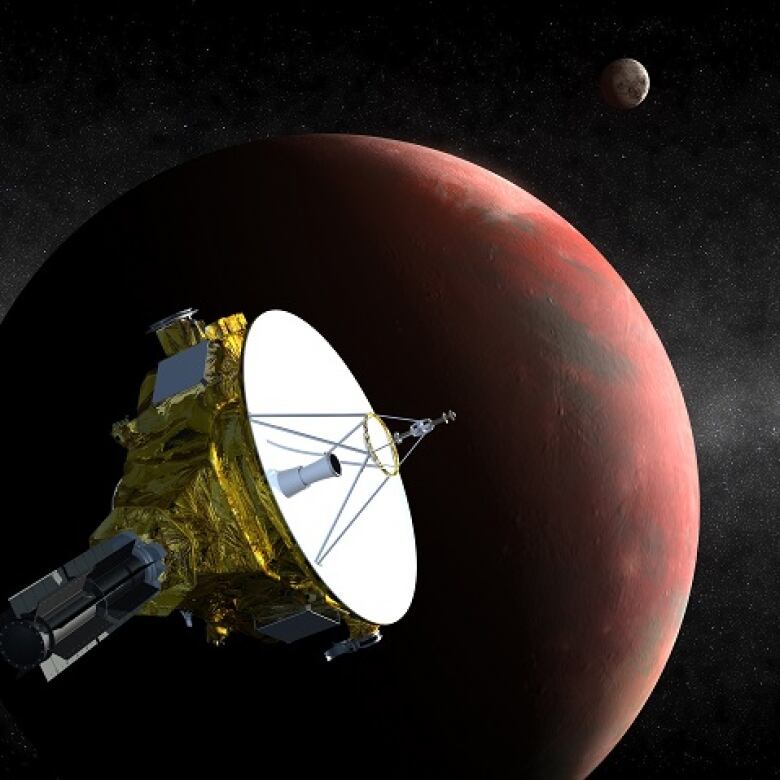New Horizons robotic probe awakened, begins exploration of Pluto
Journey of 4.8 billion kilometres took U.S. spacecraft nine years
After nine years and a journey of 4.8 billion kilometres, NASA's New Horizons robotic probe awoke from hibernation on Saturday to begin an unprecedented mission to study the icy dwarf planet Pluto and sibling worlds in its Kuiper Belt home.
An alarm clock roused New Horizons from its electronic slumber at 3 p.m. ET, though ground control teams didn't receive confirmation until just after 9:30 p.m. The probe is so far away that radio signals travelling at the speed of light take four hours and 25 minutes to reach Earth.
The scientific observation of Pluto, its entourage of moons and other bodies in the solar system's frozen backyard begins Jan. 15, program managers said. The closest approach is expected on July 14.
Pluto lies in the Kuiper Belt, a region of icy mini-planets orbiting the sun beyond Neptune that are believed to be leftover remains from the formation of the solar system some 4.6 billion years ago. It is the last unexplored region of the solar system.

"We wondered why Pluto was a misfit," Stern said.
In 1992, astronomers discovered that Pluto, located about 40 times farther away from the sun than Earth, was not alone in its diminutive size, prompting the International Astronomical Union to reconsider its definition of "planet."
In 2006, with New Horizons already on its way, Pluto was stripped of its title as the ninth planet in the solar system and became a dwarf planet, of which more than 1,000 have since been discovered in the Kuiper Belt.
With New Horizons approaching Pluto's doorstep, scientists are eager for their first close-up look at this unexplored domain.












_(720p).jpg)


 OFFICIAL HD MUSIC VIDEO.jpg)
.jpg)



























































































